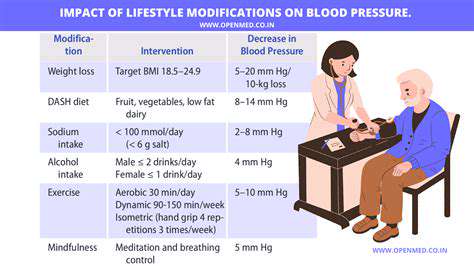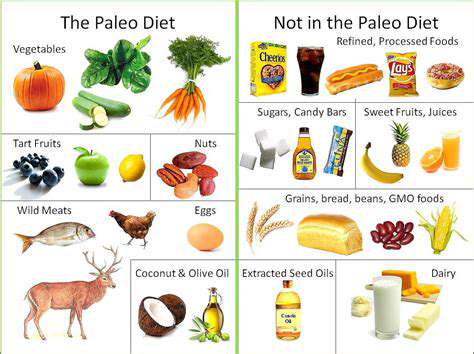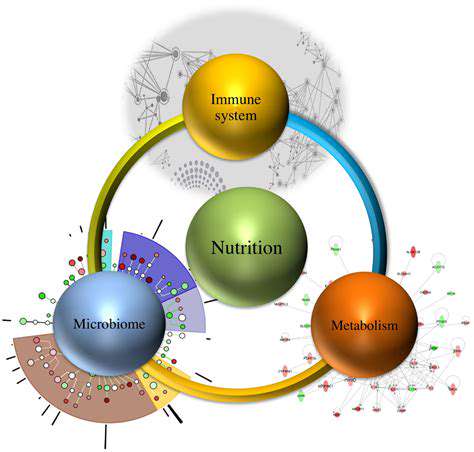Decoding Nutrition Facts: A Simple Guide
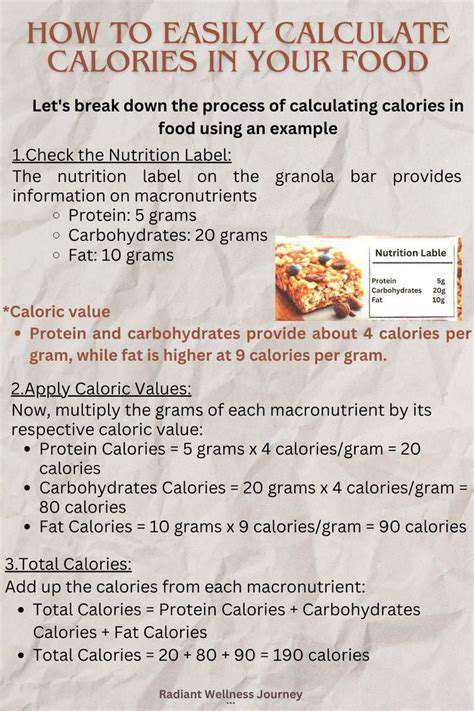
Understanding Macronutrients: A Foundation for Healthy Eating
Macronutrients are essential components of our diet, providing the energy needed for various bodily functions. They are broadly categorized into carbohydrates, proteins, and fats. Understanding their roles and how they interact is crucial for achieving and maintaining optimal health. A balanced intake of macronutrients helps support energy levels, muscle growth, and overall well-being.
Carbohydrates: The Body's Primary Fuel Source
Carbohydrates are the body's primary source of energy. They are broken down into glucose, which fuels cells and powers various bodily functions. Complex carbohydrates, found in whole grains, fruits, and vegetables, offer sustained energy release and are rich in essential vitamins and minerals. Simple carbohydrates, found in processed foods and sugary drinks, can lead to rapid spikes in blood sugar levels.
Proteins: The Building Blocks of Life
Proteins are essential for building and repairing tissues, including muscles, organs, and skin. They are composed of amino acids, some of which the body can produce, while others must be obtained from dietary sources. High-quality protein sources, such as lean meats, poultry, fish, eggs, and legumes, are vital for growth, development, and overall health. Protein also plays a role in hormone production and immune function.
Fats: The Essential Nutrient Often Misunderstood
Fats are often viewed with suspicion, but they are crucial for various bodily functions. They support hormone production, nutrient absorption, and cell structure. Unsaturated fats, found in avocados, nuts, and olive oil, are generally considered healthy and beneficial for heart health. Saturated and trans fats, on the other hand, are often associated with negative health outcomes and should be consumed in moderation.
Macronutrient Ratios and Individual Needs
The ideal macronutrient ratios vary depending on individual needs and goals. Factors such as activity level, age, and health conditions can influence the optimal balance of carbohydrates, proteins, and fats. Consulting with a registered dietitian or nutritionist can help determine personalized macronutrient ratios tailored to specific requirements. This tailored approach ensures optimal nutrient intake and supports individual health goals.
Macronutrient Interactions and Digestion
Macronutrients interact in complex ways within the digestive system. The body breaks down carbohydrates into glucose for energy, proteins into amino acids for tissue building, and fats into fatty acids for various functions. Proper digestion and absorption of these nutrients are crucial for overall health and well-being. Imbalances in macronutrient intake can lead to digestive issues and other health problems. Therefore, understanding these interactions is vital for maintaining a healthy diet.
The Importance of Balanced Macronutrient Intake
A balanced intake of macronutrients is crucial for optimal health and well-being. It's essential to consume a variety of nutrient-rich foods from all food groups. This approach ensures the body receives the necessary building blocks and energy for all its functions. Prioritizing whole, unprocessed foods and limiting processed foods is vital for a healthy macronutrient intake. A balanced diet provides essential vitamins, minerals, and antioxidants for overall health and disease prevention.
Many individuals experiencing CV joint problems initially mistake the symptoms for other, less serious conditions. Recognizing the early warning signs is crucial for timely intervention and to prevent further damage. These early indicators can range from subtle aches and pains to more pronounced discomfort, making self-diagnosis challenging. Understanding the nuances of these early warning signs can significantly improve the chances of a successful CV joint replacement.
Micronutrients: Vitamins and Minerals
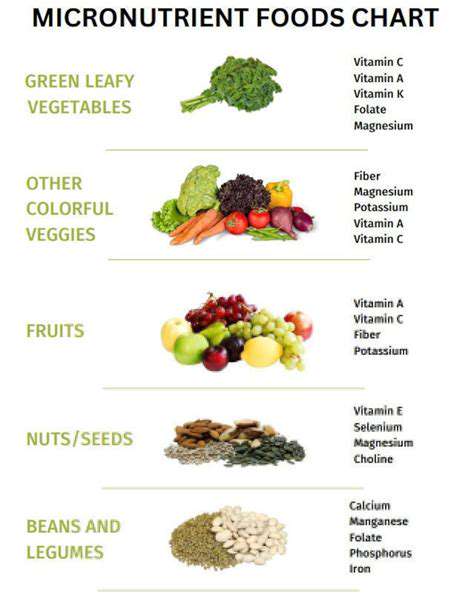
Essential Vitamins for Optimal Health
Vitamins are organic compounds that the body needs in small amounts to function properly. They play crucial roles in numerous bodily processes, from supporting the immune system to promoting healthy cell growth. A balanced diet is key to ensuring adequate vitamin intake, and deficiencies can lead to a range of health problems. Different vitamins serve different purposes in the body, highlighting the importance of a varied diet to meet all nutritional needs.
Many vitamins are essential for maintaining healthy vision, while others are vital for proper nerve function. Understanding the specific roles of each vitamin is crucial for making informed dietary choices, and consulting with a healthcare professional can be beneficial for personalized advice.
The Crucial Role of Minerals in the Body
Minerals are inorganic elements that are necessary for various bodily functions. They contribute to building strong bones and teeth, maintaining fluid balance, and facilitating nerve and muscle function. Adequate mineral intake is essential for optimal health and can impact overall well-being.
Different minerals have distinct functions. For example, calcium is vital for bone health, while iron is necessary for red blood cell production. Recognizing the unique roles of various minerals can help individuals create a balanced diet.
Understanding Vitamin Deficiencies
Vitamin deficiencies can arise from various factors, including poor diet, malabsorption issues, or certain medical conditions. Symptoms of deficiencies can range from mild to severe, impacting various bodily systems. Identifying the root cause of a deficiency is crucial for effective treatment.
Recognizing the early signs of vitamin deficiencies is important for prompt intervention. This can often prevent more serious complications and help maintain overall health.
Exploring the Significance of Micronutrients
Micronutrients, encompassing vitamins and minerals, are vital for various bodily functions. Their presence in adequate amounts is essential for maintaining a healthy immune system, promoting healthy cell growth, and supporting energy production. The body cannot produce these crucial nutrients on its own, emphasizing the importance of obtaining them from the diet.
Micronutrients play a critical role in cell metabolism, and their absence can disrupt these processes, leading to various health issues. Focusing on a balanced intake of these essential nutrients is essential for overall health and well-being.
Dietary Sources of Essential Vitamins and Minerals
A wide variety of foods contain essential vitamins and minerals. Fruits, vegetables, whole grains, and lean proteins are excellent sources of these nutrients. Understanding the nutritional content of different foods can help individuals create a balanced diet.
Exploring different food groups and incorporating a variety of foods into the diet is crucial for obtaining a wide range of micronutrients. Dietary supplements may be necessary in certain situations, but they should not replace a balanced and varied diet.
Micronutrient Interactions and Synergies
The interaction between different vitamins and minerals is crucial. Some vitamins and minerals work synergistically to support specific bodily functions. For instance, vitamin C enhances iron absorption, while vitamin D aids calcium absorption, highlighting the interdependence of these nutrients.
Understanding these interactions is essential for maximizing the benefits of micronutrients. A balanced intake of various vitamins and minerals can support overall health and well-being, and consulting with a healthcare professional can help tailor dietary recommendations to individual needs.
